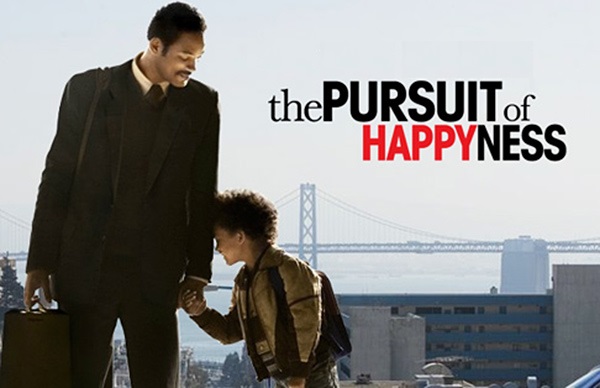
Russell's paradox: "To be without some of the things you want is an indispensable part of happiness."
Counter-intuitive though it appears, it is one of the truths of life. The process of striving for and getting something that you want, and do not have, is far more enjoyable than possessing what you thought you wanted. If we realized that, we would know that not having something should actually be a source of happiness and not misery. (One, of course, excludes the necessities of life. A starving man is unlikely to be jumping with joy at the prospect of striving for a morsel of food).
Everyone knows the importance of happiness, and quests for it. Bertrand Russell, though, goes a step further: "The good life, as I conceive it, is a happy life. I do not mean that if you are good you will be happy - I mean that if you are happy you will be good." Considering the absolute importance of happiness, why then is it so difficult to achieve it?
The bigger problem, though, is the fact that we are never in control of our own happiness since we leave it at the mercy of public opinion. Russell has this to say about it - "One should as a rule respect public opinion in so far as is necessary to avoid starvation and to keep out of prison, but anything that goes beyond this is voluntary submission to an unnecessary tyranny, and is likely to interfere with happiness in all kinds of ways". Not really the way we have been tuned to live, since we rely upon public opinion to even decide what we ought to take pleasure in. "It is essential to happiness that our way of living should spring from our own deep impulses and not from the accidental tastes and desires of those who happen to be our neighbors, or even our relations", says Russell and it is in this essential that most of humanity fails since what we do, where we live and how we conduct our lives is all at the mercy of neighbors.
But, then, is it not true that "One of the most powerful of all our passions is the desire to be admired and respected"? When such is the case, is it not in the nature of man to compare himself with others even if it makes him miserable with jealousy and "Envy consists in seeing things never in themselves, but only in their relations. If you desire glory, you may envy Napoleon, but Napoleon envied Caesar, Caesar envied Alexander, and Alexander, I daresay, envied Hercules, who never existed." Or to quest for power, even if "Next to enjoying ourselves, the next greatest pleasure consists in preventing others from enjoying themselves, or, more generally, in the acquisition of power." If, though, it is an unalterable nature of man to be thus, then it must also be considered that it is the unalterable nature of man to be unhappy. Unless, of course, you are the sort of person who can be happy with the idea of causing unhappiness to others, which may make you happy but renders you unfit to be called a man.
So pervasive is the impact of public opinion on some that they would even allow it to invade and dictate their conduct in their leisure moments. If they were the sort who prefer reading, they would choose the second of the following options - "There are two motives for reading a book: one, that you enjoy it; the other, that you can boast about it." But, then, they could well belong to the ilk of "Men who are unhappy, like men who sleep badly, are always proud of the fact."
The thing to remember, though, when bowing to public opinion, is that "No one gossips about other people's secret virtues." Which, in effect, means that you strive for a good opinion in vain since all that will be talked about are your faults. There is hardly a point, though, in berating those who do that since "It is a waste of energy to be angry with a man who behaves badly, just as it is to be angry with a car that won't go."
We also tend to muck up our personal relations. Love, and failure in it, are the cause of a lot of unhappiness. Russell gives out this warning - "It's easy to fall in love. The hard part is finding someone to catch you." In marital life, one of the easiest ways to lose love is to remind the other person of all the 'sacrifices' you made for him/her. This makes them feel as though you stayed by them and did what you did out of a sense of duty and "A sense of duty is useful in work, but offensive in personal relations. People wish to be liked, not be endured with patient resignation."
The biggest stumbling block in the way of changing your life around to a happier mode is that we always externalize the reasons for our unhappiness. Russell says, "We do not like to be robbed of an enemy; we want someone to hate when we suffer. It is so depressing to think that we suffer because we are fools; yet, taking mankind in the mass, that is the truth." Once we realize that it is our own folly that is keeping us unhappy, we are ready to redress the problem
A cautionary message is needed, though, when you undertake the process. "Sometimes the hardest thing in life is to know which bridge to cross and which to burn"
 Suresh Chandrasekaran describes himself as a mess of contradictions – a bookworm but avid trekker; alone but never lonely; enjoys solitude but loves company; lazy but a perfectionist, the litany is endless. Trekking, which side-tracked him from the writing for which he quit his job, is a major passion and he does, at least, one trek in the Himalayas every year in addition to numerous local treks. This IIM MBA and a chemical engineer reignited his passion for writing with a fairly popular blog www.jambudweepam.blogspot.com after nearly 18 years of corporate career. The blog has been rated among the Top 5 humour blogs in India, twice in succession - in 2014 and 2015 - by BlogAdda, has been listed third among the Top Humour Blogs by Baggout, and also features in the Top 100 funny Blogs in the World by a RSS feed aggregator, Feedspot.
Suresh Chandrasekaran describes himself as a mess of contradictions – a bookworm but avid trekker; alone but never lonely; enjoys solitude but loves company; lazy but a perfectionist, the litany is endless. Trekking, which side-tracked him from the writing for which he quit his job, is a major passion and he does, at least, one trek in the Himalayas every year in addition to numerous local treks. This IIM MBA and a chemical engineer reignited his passion for writing with a fairly popular blog www.jambudweepam.blogspot.com after nearly 18 years of corporate career. The blog has been rated among the Top 5 humour blogs in India, twice in succession - in 2014 and 2015 - by BlogAdda, has been listed third among the Top Humour Blogs by Baggout, and also features in the Top 100 funny Blogs in the World by a RSS feed aggregator, Feedspot.
He also has a humorous light satire – A dog eat dog-food world – print publication by Fablery, in addition to a short story each published in a collection “Uff Ye Emotions” and “Curtain Call”; and has also edited and written a novelette in an ebook anthology “Sirens spell danger”.
To comment or receive more such wisdom, please register on www.gyanalogy.com/login




Perfect message to remind us that’s yes it is out call to be happy or not – truly said to know which bridge to cross and which one to burn !!!